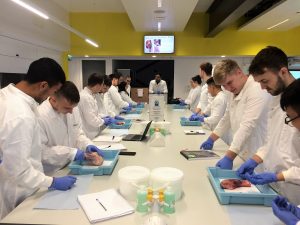
So, you’ve completed three weeks of your first four modules and you will all be adapting to University study at different rates – this is absolutely fine (and very much expected). Getting a degree is about engaging with taught sessions, completing tasks and being successful in assessments but to do this and do it well it needs to go beyond the timetable. You will hear people talk about being “independent” as a fair amount of your module hours are allocated to work you do in your own time – engaging in activities outside of your timetable is one way of showing your independence.
Check out previous blogs on transitioning to university but here are ways for you to get more out of your first year, and set yourself up well for the next part of your academic journey. You’ll appreciate it more at the end than now but now is the time to invest in yourself.
A lot of support is in place as your teaching team have pre-empted challenges but also in response to feedback. Did you know this is all extra for you to engage in and it will help you?
- Academic tutor – your go-to person who is more than happy to chat and help you if you need it. The more you get to know your academic tutor, the more convincing and supportive their future references will be when you start applying for jobs.
- Chemistry and Maths support so you don’t feel out of your depth because you don’t have a Chemistry A-level. All of the pre-course material has been co-developed with students to help you feel confident in BIOL111 and BIOL112.
- Exam support by the learning development team and you can check out all the amazing training and workshops offered by the library and the ISS team.
- Navigating Moodle takes a while to get used to but there are loads of links and resources available per module, but also plenty generic sports science links on the course page – check these out.
We want you to be employable so the opportunity to gain a vocational fitness qualification(s) during year 1 is something you should be jumping at the chance to do. Not only will you be employable by the end of your first year, you can try to get work in the fitness industry and that will put you ahead of the rest when it comes to applying for jobs – take any opportunity you can to work with people in your chosen field.
Join a sports or social activity club – as you move through your University years, opportunities will arise to take leadership roles within clubs such as team captain or team secretary. These are fantastic transferable skills to add to your CV.
Engage in your future profession and enjoy your BASES Student Membership.
My 17 years of being within the world of Sports and Exercise Science has taught me one thing and that is to encourage the above points to up and coming scientists, and take every opportunity.
Dr Michelle Swainson (Part I Director of Studies 2018/19)








